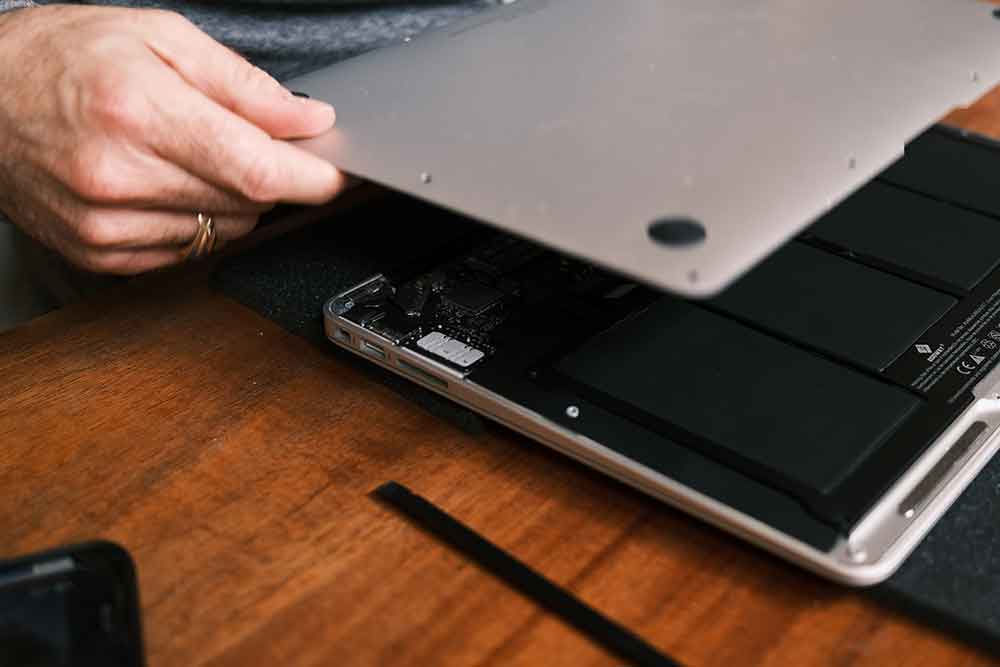Technology
How To Protect The Data During A Computer/Laptop Repair?


After a specific span, electronic devices like laptops, computers and smartphones require repair. Unfortunately, only some are hardware experts, so it is common to send the device to a shop to repair it. While the device is in the repair shop, the users rightly worry about the security of the data. Here is a list of a few precautions that you can take before sending your laptop or computer for repair.
1. Data Backup
While sending your laptop for repair, chances are high that the technician will format the device if required. You might lose the data if you have not stored images or sensitive documents in cloud storage. Therefore, use external devices like hard disks to back up all the critical information you want to save. Furthermore, you can store such data on a cloud storage platform from where you can access the data from anywhere and anytime.
2. Log Out Of Accounts
It is the second necessary precaution that you need to take. Often, for easy accessibility, we keep our accounts logged in. However, you must log out from the accounts when handing your device to a third person for repair. Also, your browsing history might reveal sensitive information, like you used your What Is My IP to find your IP address or other searches. Therefore, deleting the browsing history and the browser’s saved password is crucial.
3. Clear The Cache and Cookies
The person repairing the device might ask for user credentials to check whether the device is running properly after the repair. To avoid any data compromises, you need to log out from the accounts and ensure that you have cleared the cookies and cache of the website.
We recommend you create a new user or guest account with no password. The technician can use this user account to check the laptop’s functioning. It is a win-win situation for both the technician and you. Also, with a guest user account, you do not need to hand the login password to the technician.
4. Uninstall Sensitive Software
If your laptop has sensitive software installed, consider uninstalling it if it is convenient. Remember to save the password in a physical copy to ensure that you can log in easily. We are not asking you to keep the password in your smartphone because if you have enabled sync between your computer and laptop, you might end up compromising your password.
5. Encrypt The Files
You should also encrypt all the sensitive information stored in your laptop or computer to prevent unauthorized access. Only the person with the correct credentials can decrypt the files. With many software available online, anyone can lay their hands on sensitive information. To prevent the same, encrypting the files is a must.
6. Shred The Deleted Files
After completing the backup, you might have deleted the files. However, it is possible to recover deleted files through software. Therefore, instead of deleting or deleting the files, we recommend you shred the data files. Shredding will permanently delete your data so that no one can recover it. Again, plenty of online software will allow you to shred the deleted files.
7. Check The Authenticity
Handing your laptop to any random person for repair is not recommended. It is wise to check the service center’s authenticity to ensure that you can trust that the technicians will not use your device for unethical activity. You can check the authenticity by checking the reviews online. With a glance, you can judge whether the customers of a particular service center face an issue or not.
8. Remove Accessories
You should also remove any external device like HDD, SSD, or other storage devices from the gadget. Furthermore, you can take an extra step in ensuring the safety of the different hardware of the device by either clicking a photo of the different components or recording a video. You can use this photo or video to verify later if they have unnecessarily replaced any authentic part of the device.
In digital life, there is no guarantee of the safety of the data. However, with these precautions, you can minimize the risk of data compromises. Before handing over your device and after receiving it, pay extra attention to the minute details to stay safe.













